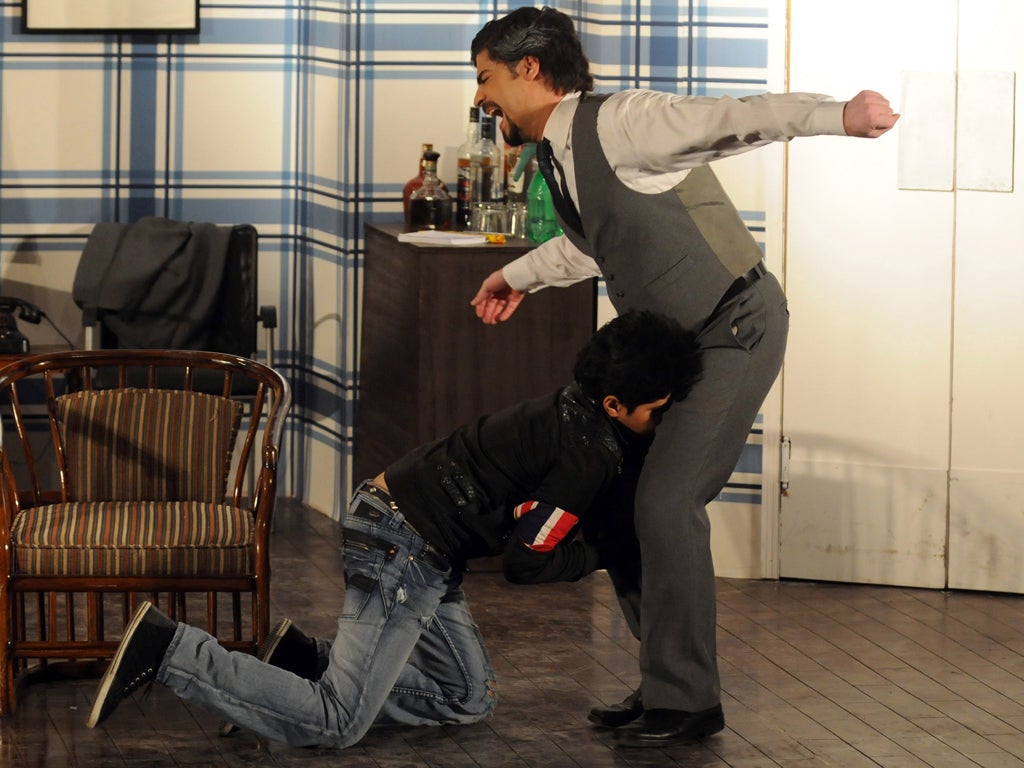Two drama teachers were sacked for play where students acted out sexual abuse - but drama is meant to shock
Drama is meant to challenge actors and audiences - the teenagers were acting.


Two unnamed secondary school drama teachers have apparently been sacked by their school and are pursuing unfair dismissal claims.
Their offence? They taught GCSE drama to 15 and 16 year olds as it should be taught, in an uncompromising, rigorous, challenging way.
The students devised (that means worked out and wrote in drama jargon), produced, directed and acted in a short play – which is exactly what they’re supposed to be doing. I don’t know which GCSE drama syllabus they were using but devising your own work is in all of them.
The problem in this case was that the work – which was performed to friends and family – was about sexual abuse within the family and it depicted some pretty graphic activity, including a rape and oral sex.
It sounds – although I have only very samey newspaper reports to judge from – as if it was very powerful effective drama which really got to some of the people who saw it. One child wept and two more – including rather oddly – one of the actors, vomited. And a number of people reported afterwards, according to testimony produced at the tribunal, that they had found the experience a positive one.
My impression is that these teachers were actually doing a good job – making drama pose some very uncomfortable questions, which is exactly what drama is meant to do. It isn’t about putting on pretty bits of shallow, anodyne entertainment and does not begin and end with The Sound of Music or a pantomime version of Cinderella. Yes, it may have been unsuitable for a primary school group but these students were not children. They were young adults who – like it or not – will have experienced quite a bit of the world as it is, rather than as we might like it to be.
The mistake which these teachers made – and it’s hardly a sackable offence – was in failing to warn parents and friends that the play dealt with sensitive issues and was not suitable for younger children.
There is nothing remotely wrong with drama which upsets the audience and makes people think. I find the blinding of Gloucester in King Lear intensely distressing. When I saw Starfish – a play presented by Y Touring which takes issues-based shows into school – I wept, at the end because it reminded me of the medical dilemmas faced by my father towards the end of his life. The last few moments of Katie Mitchell’s production of Ibsen’s Ghosts for the RSC with Simon Russell Beale and Jane Lapotaire still makes me shiver to think about it, nearly twenty years later.
But, when you see a drama, however much the ‘willing suspension of disbelief’ kicks in, you know, at some level, that these are actors pretending and that they will be in the pub half an hour after the show – or cursing the traffic as they drive home through it.
Teenagers in a school watching their friends know this as well as anyone. They understand how drama works. The issues are real but the action in front of them is not. Drama offers a way to tackle difficult issued impersonally. That is part of its job.
Pity then that this case should have been judged by people who really don’t seem to have a clue what drama is about or what it’s for. The tribunal judge, Lady Smith, has overturned the Employment Appeal Tribunal’s earlier decision in the teachers’ favour. This week she decreed that the case be reheard.
She was guided by the views of the local council’s ‘safeguarding manager for education’ – who is not, please note, a drama specialist. He watched a DVD of the performance and expressed shock that the pupils were ‘allowed to engage in such sexualised behaviour’. They weren’t. They were acting. And acting means that you pretend to be something that you’re not in a very controlled environment. Actors – whether professional or amateur, young, middle aged or old – are NOT the roles they play or the actions they depict.
So, because a safeguarding manager (with a job title like that …) has experience in role play which is a therapeutic technique and not the same thing at all as drama, two teachers – who are apparently pretty good at what they do – have lost their jobs. Call that justice?
Join our commenting forum
Join thought-provoking conversations, follow other Independent readers and see their replies
Comments
Bookmark popover
Removed from bookmarks